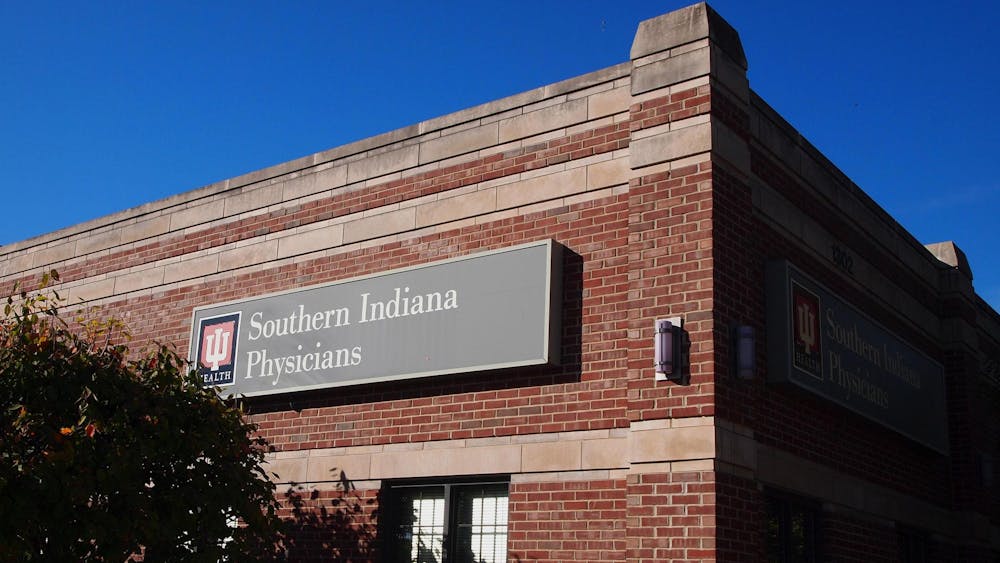Health insurance might seem complicated, but exploring options isn’t brain surgery.
As if landing a job after graduation isn’t difficult enough, looking into jobs with benefits, such as a health insurance plan, might be the last thing on students’ minds. The decision not to look into health care options, though, might be a costly one.
IU Health Center Executive Director Hugh Jessop said 22 to 28 percent of students at IU do not have health insurance, and though they might think they’re invincible now, they should take time to consider jobs for more than just a salary.
“People don’t understand where all the money is,” Jessop said. “What you need to do is draw up the businesses and look into the benefits, such as educational incentives, life and health insurance, vacation time and sick days. You must look at the entire package.”
While the idea of having a job with health care benefits sounds good to some students, many said they doubt they will have the option to get an entry-level job with benefits.
“Ideally, it would be great to find a job with health insurance benefits,” senior Mary Reisert said. “Realistically, the way the economy is now and the industry I want to go into, I doubt it will happen.”
Other students said the lack of knowledge of the health care system is a reason benefits might be overlooked.
Senior Bryson Bosson said he believes that if graduating students had a better idea of how insurance policies, premiums and deductables worked, they would find the job market and life after college less intimidating.
“If it were not such a hot topic issue, I don’t believe many graduates would give one job a second thought over another based solely on their health care options,” Bosson said.
Eleanor Kinney, professor of law at the IU School of Law-Indianapolis and co-director of the Center for Law and Health, said she thinks workshops would be helpful for students because they already have many graduation requirements to meet.
Kinney added that after teaching a health law policy class for 20 years, she’s still surprised to see how many students lack health insurance.
Kinney said she believes graduating students should take time to look into all possible health care options because not all heath care is the same.
Employers are not required by law to provide insurance, and Indiana has seen a 5 percent drop in employer-sponsored health insurance, Kinney said. But there are other plans available, such as the Healthy Indiana Plan or Hoosier Healthwise, a program for those who are not doing well financially.
Kinney said the cost of health insurance plans can vary greatly, depending on how customized they are. Basic health care plans will be less expensive than very advanced “first-dollar” coverage, she said, adding that because health care plans are so customized, it’s hard to determine an average cost. It’s also difficult to say when a student’s coverage ends if he or she is covered under a parent’s health care plan because it depends on the health care provider, she said.
Undergraduate and graduate students can turn to the IU Health Center if they want health insurance and are not covered by another plan.
Nichole Hurst, student health insurance coordinator at IU, said Aetna, a health benefits provider, has been the administrator for IU’s health insurance plan since 2004. It offers a voluntary plan for all domestic undergraduate and graduate students who meet the credit hour requirements: at least six hours for undergraduates and at least three hours for graduate students. The plan’s annual cost for the 2008-2009 school year is $1,564.
Hurst said about 9,000 students overall are covered by the health insurance IU provides and that most recipients are graduate students.
Under this plan, graduating students are covered until Dec. 31 if graduating in December or mid-August if graduating in May, Hurst said.
Hurst said students have the option of extending their IU health care plans for $200 a month for up to six additional months after they graduate.
Jessop said IU has resources on campus that can help students understand benefits that might come with jobs.
“IU’s Career Planning and Placement helps students understand benefits packages as well as job opportunities,” Jessop said. “Benefits can add up to 24 to 38 percent of a salary’s value.”
Kinney said her best advice for students looking for health care would be to explore all options, to ask what tests cost ahead of time, to try to get an arrangement with a doctor who knows you and to not be too proud to utilize local community health centers or charity clinics.
Kinney said ending up in the emergency room and having no health insurance could mean costly tests because the physicians do not know about the patient’s medical history, and as a patient, one should be prepared to be able to bargain and avoid unaffordable costs.
“Many say they can’t afford health insurance or it’s not a very good buy,” Kinney said. “But in these times, you can’t really afford not to have health insurance.”
Experts weigh health care plans
Get stories like this in your inbox
Subscribe





